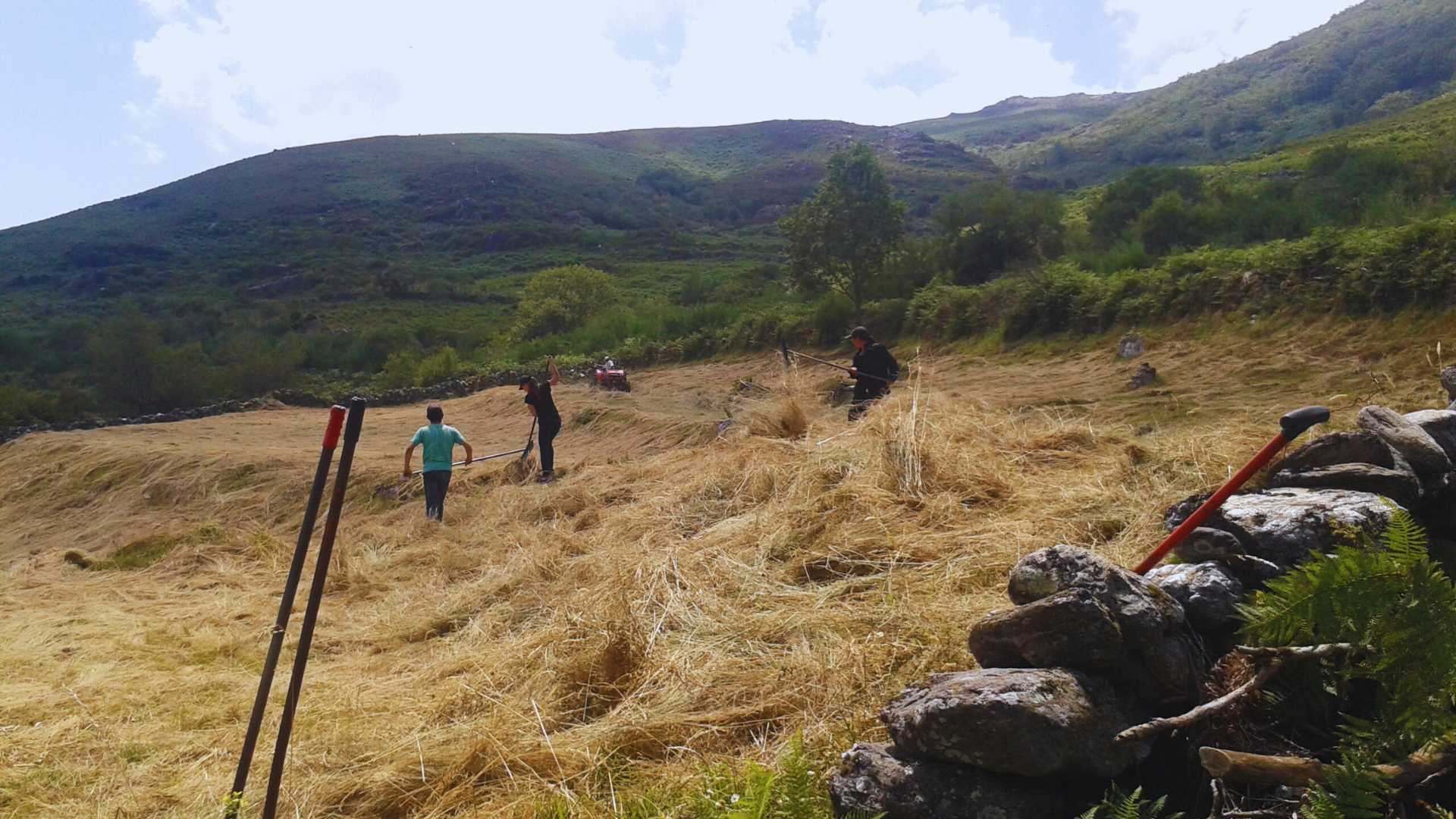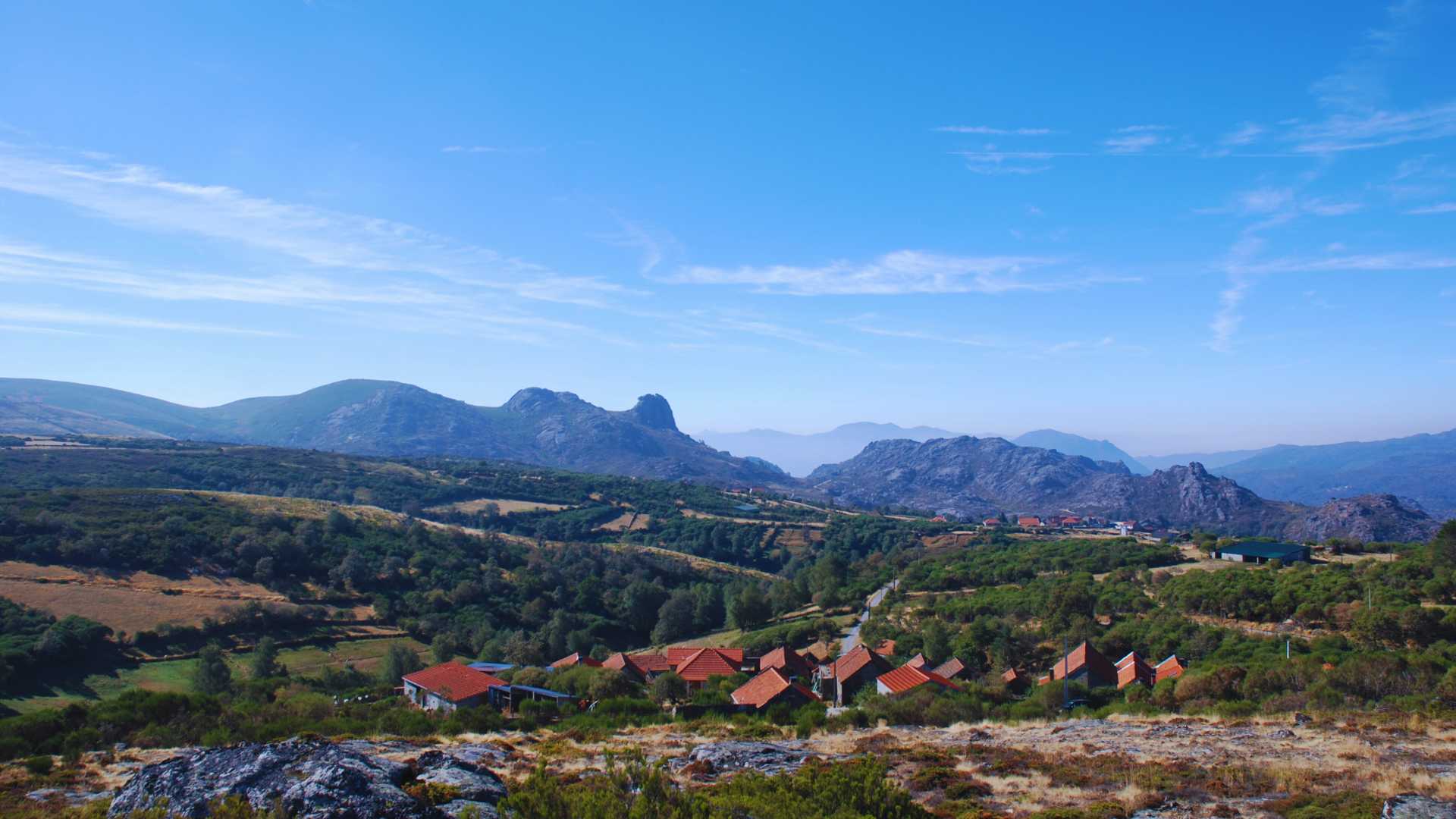By Dr António T. Monteiro (University of Lisbon), Antonia Egli (Dublin City University), and Catherine Rae (Dublin City University)
Despite being relatively small in size, Portugal has a large variety of landscapes. While Portuguese beaches and coastal cities tend to attract the most tourists, the country also boasts vast mountainous regions. Geographically, mountains occupy 18% of Portugal’s territory. These regions are home to mountains such as Serra de Estrela, Serra do Geres, Serra da Lousa, and Serra de Sao Mamede. One defining factor of these mountain regions is their classification of being marginalised.
Portuguese mountains, in common Portuguese words “serras”, are unique ecological, social, economic, and cultural spaces. Because of their isolation in relation to the Portuguese coast, these areas developed using only local resources to survive, maintain large families, and support a life with dignity.
Portuguese mountainous regions are also a source of rich ecosystems and subjects of study for academic researchers. These regions present a combination of diverse natural habitats, significant cultural heritage, and captivating landscapes that warrant exploration and analysis. From the heights of the Serra da Estrela, the highest mountain range in mainland Portugal, to the Peneda-Gerês National Park, the country’s oldest protected region and sole national park, these areas provide valuable opportunities for researchers active in the fields of geology, ecology, cultural anthropology, and sustainable development. With their distinctive rural communities, valleys, and ancient trails, Portuguese mountainous regions invite scholarly investigation into topics such as environmental conservation, rural livelihoods, tourism development, and the preservation of cultural heritage.

Credits: Dr Antonio T. Monteiro (University of Lisbon)
A first exploration into Portuguese marginalised mountainous regions
As in many other European mountain areas, life in Portuguese mountainous regions relied on the basics: farming with a particular focus on livestock grazing, wood extraction, and wheat and potato agriculture. In this system, human-wildlife conflicts were frequent, particularly with wolves, wild boar, and black kites. Education was only available to the wealthiest families, who were usually the largest landowners. Land ownership clearly defined the boundary between poverty and subsistence. Religion equally shaped these livelihoods, with many mountains still celebrating their own traditions every year.
Because life in Portuguese mountain areas was hard and marked by poverty, the 1960s brought about a strong exodus amongst its population. Initially, emigration led mountain inhabitants towards Portuguese coastal cities, but France, Germany, Switzerland, Canada, the United States, Brazil, and Venezuela also became popular destinations following the 1974 Carnation Revolution. While the exodus was first seen by local communities as a step forward in life, it is nowadays viewed as a major concern.
Portuguese mountain regions have transformed into marginal territories throughout the past century. A region is considered marginalised when it faces disadvantages – social, economic, or environmental – in comparison to other regions. Marginalised areas are thus not given the same opportunities and resources to thrive as other areas. Similar to other mountain areas of Europe, depopulation in rural regions of Portugal has contributed to the marginalisation of these communities. Typically, remaining members within a community represent an ageing population, while younger generations emigrate to urban areas. The regions left behind today face economic struggle, inadequate infrastructure, limited employment opportunities, and limited access to services.

Credits: Dr Antonio T. Monteiro (University of Lisbon)
How can ecotourism create pathways to post-marginalisation?
Since the 1970s, Portuguese mountain areas have undergone significant transformation strongly linked with the country’s adhesion to the European Union in 1987. The population’s quality of life, education, and well-being reached unprecedented levels. The economy diversified and new economical narratives emerged due to the relevance of mountain natural capital for Portugal. For nature conservationists, rewilding became the future – for local communities, uncontrolled rewilding a concern. Climate change simultaneously dried Portuguese mountain water towers, while wildfire-prone vegetation converted mountain areas into heritage places under threat. By fear or by isolation, upland villages were left in favour for local municipalities offering new job opportunities. Within such a highly complex system, the traps for both ecosystems and inhabitants became cross-sectorial and required disruptive initiative in a country otherwise heavily reliant on its sea coast.
However, some of these neglected regions have blossomed into hubs for ecotourism. Ecotourism is tourism to natural areas that is based on preserving the environment and respecting the well-being of the local people. Rural areas in Portugal’s mountains now offer an opportunity to sustainably experience authentic ways of the land. In general, the areas of Portugal that are most appealing to tourists have been transformed from their original state to better suit the tourism industry. Mountainous areas, on the other hand, have been preserved. By securing the integrity of these regions, mountain communities can become hubs for ecotourism for years to come, helping to foster economic growth in marginalised areas. For areas that are seemingly stuck in time, the promotion of ecotourism, in particular, represents an effort to mitigate the effects of marginalisation in Portugal.


